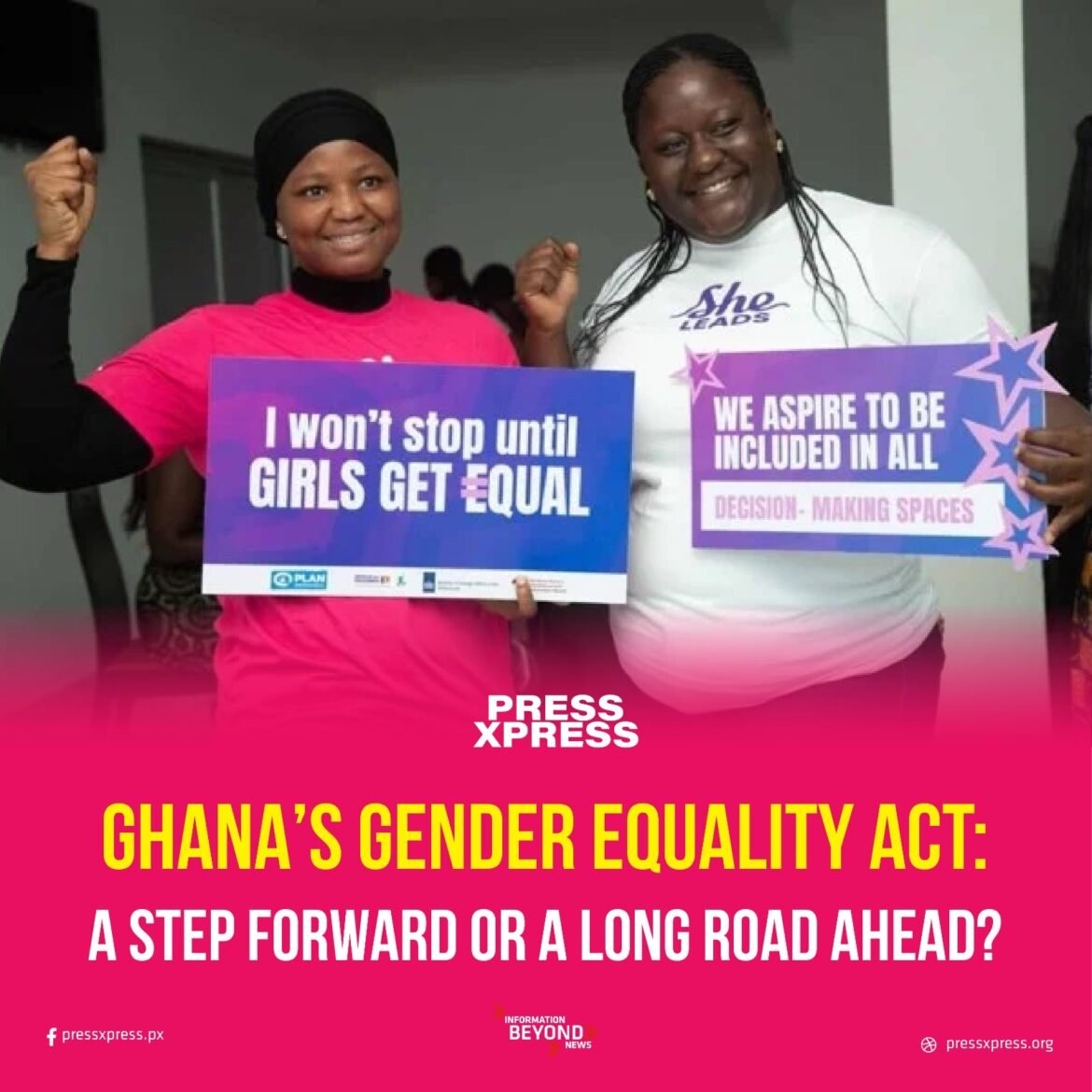After nearly three decades of advocacy, delays, and political debate, Ghana has finally passed the Affirmative Action (Gender Equality) Act in 2024. The law is hailed as a monumental step toward gender parity, aiming to ensure that women hold influential positions in various sectors such as politics, commerce, and security. While this milestone is celebrated by many, the journey to its implementation highlights deep-rooted institutional challenges. The law has been in legislative limbo for years, and its eventual passage raises critical questions about its potential impact and whether it can bring about real change in Ghana’s socio-political fabric.
The journey to passing the Affirmative Action Act began in 1998, signaling nearly three decades of anticipation, frustration, and persistence from women’s rights activists. Delays were largely attributed to the lack of political will, with successive governments failing to prioritize the bill despite making it a frequent campaign promise. This long wait has drawn heavy criticism from activists, who argue that the procrastination reflected a broader indifference to women’s issues in Ghana.
The final passage of the law comes at a crucial time when many African countries, including Rwanda, Uganda, and Mozambique, have already implemented similar laws mandating gender quotas. These nations have seen increased female representation in decision-making bodies, and Ghana’s new law, which mandates at least 30% female participation in such spaces, is expected to follow suit. However, the delayed passage could imply that the road ahead may still face considerable obstacles, particularly in terms of institutional resistance and societal attitudes towards women in leadership roles.
Key Highlights of the Law:
- 30% Minimum Representation: Mandates at least 30% female representation in leadership positions across government, trade unions, and private sectors, with a target to increase this to 50% by 2030.
- Incentives for Private Sectors: Private businesses that comply with the gender equality provisions are eligible for tax breaks and other economic incentives.
- Enforcement Measures: Includes penalties such as fines and jail terms (6-12 months) for non-compliance, targeting gender discrimination, verbal harassment, and failure to ensure gender-balanced leadership.
- Political Participation: The Electoral Commission is required to ensure that political parties adhere to gender quotas in candidate selection and leadership roles.
Ambitious Goals but Feasible Targets?
The Affirmative Action Act of 2024 sets out an ambitious agenda for gender parity, aiming for 50% female representation in decision-making roles by 2030. The law stipulates that women must occupy at least 30% of leadership positions in government, trade unions, and private industries, with incentives like tax breaks offered to private businesses that comply.
In theory, these provisions are transformative, as they aim to rectify historical gender imbalances that have marginalized women in political, economic, and social spaces. The law’s broad-based approach, which includes the private sector, is particularly notable, as it incentivizes gender equality not only through regulation but also through economic benefits. However, skeptics question whether these targets are feasible, considering the deeply entrenched gender biases in Ghanaian society. The law’s success will depend not just on its provisions but on the willingness of both public and private institutions to enact meaningful changes in their organizational structures and cultures.
Enforcement and Penalties: The Challenge of Implementation
While the Affirmative Action Act is being celebrated as a landmark achievement, its real test lies in its enforcement. The law includes various penalties for non-compliance, ranging from fines to jail terms of six to 12 months for offenders. These penalties target behaviors such as gender-based discrimination, verbal harassment, and the failure of trade unions to ensure gender-balanced leadership. However, enforcement mechanisms remain a significant concern for many advocates. In a country where the political will to enforce gender equality laws has been historically weak, questions arise about how rigorously this law will be implemented. Some worry that the law may become a largely symbolic gesture, much like other well-intentioned policies that have been inadequately enforced.
Without robust oversight mechanisms and a clear regulatory framework, the law risks becoming a paper tiger—strong in theory but weak in practice. Additionally, critics argue that the focus on quotas and penalties, while important, should be accompanied by broader societal reforms to challenge deep-seated patriarchal norms.
Will the Law Reshape Elections?
As Ghana heads toward its general elections in December, the Affirmative Action Act could have significant implications for women’s participation in politics. The law mandates that political parties meet gender quotas, potentially opening up new opportunities for women to contest elections and assume leadership positions.
Currently, only two women have submitted nomination forms for the presidency, one fewer than in the 2020 elections, reflecting the persistent barriers women face in running for office. However, the new law could serve as a catalyst for change, encouraging more women to step forward and participate in the political process. The Electoral Commission is tasked with ensuring that political parties comply with the law’s provisions, and this may lead to an increase in female representation in parliament and other decision-making bodies. Yet, the upcoming elections will serve as a critical litmus test for the effectiveness of the law. Whether political parties will genuinely embrace the spirit of the law, or merely pay lip service to its requirements, remains to be seen. The law’s success in reshaping Ghana’s political landscape will depend on the commitment of political institutions to not just meet quotas but also to create an enabling environment for women to thrive in leadership roles.


